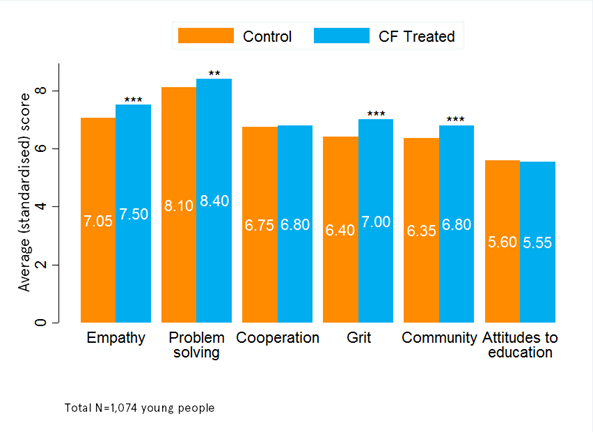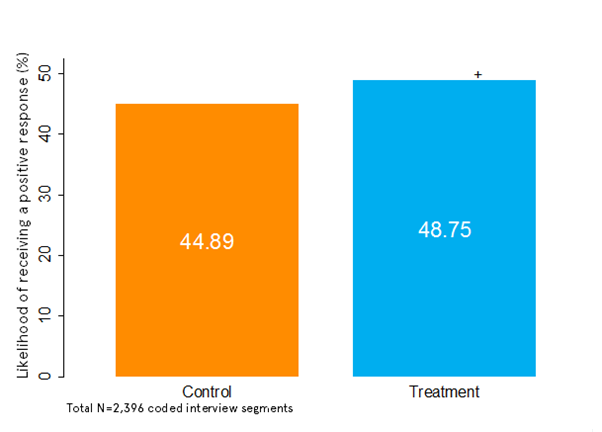Today sees the publication of BIT’s evaluation of the Cabinet Office’s Youth Social Action Fund, an interim version of which was published last year.
Our report provides compelling and robust evidence that young people who take part in social action initiatives, such as volunteering, develop some of the most critical skills for employment and adulthood in the process.
Historically, evaluations of the effects of social action on young people’s broader prospects have been qualitative in method. The ambition for this programme was to add to this existing research-base by providing quantitative evidence to identify whether social action in and of itself causes and catalyses the development of skills for work and life in young people who take part. To achieve this, we ran three randomised controlled trials (RCTs) and one pre/post comparison to compare the outcomes for young people who took part in these funded initiatives against the outcomes of young people who did not.
Though the three programmes evaluated were each different in their approach, they consistently improved young people’s levels of empathy, and their sense of community involvement. Some programmes were also impressive in increasing students’ cooperation and levels of grit. Moreover, those who participated in social action seemed largely more willing to donate their time in the future, though no such effect was seen with money.
Figure 1: Citizenship Foundation results for the six psychological constructs
Increasing empathy and cooperation in the majority of trials conducted, as well as several measures of social trust, shows the value that social action can have for young people. As our chief executive David Halpern has argued previously, improvements in these measures is not simply a ‘nice to have’ improvement in some soft measures – it can have significant real world impacts on economic growth.
The new findings in our final report also allow us to add another piece of evidence to this picture. In one of the trials, we conducted a mock interview task with several participants from both the treatment and control groups. These interviews were then evaluated by independent reviewers blinded to the treatment assignment of the participants. What we found was that participants were 10% more likely to be successful in this interview task (judged by assessors saying that they would hire them), if they had taken part in social action as part of our trial.
Figure 2: Results for the Interview Measure of Employability
Interestingly, the results of this trial are similar to another study, this one conducted as a part of our Adults Skills and Knowledge Research Centre. We conducted a “CV Audit study”, in which job applications were made to over 1,000 jobs, varying whether or not the applicants volunteered in their free time. What we found is that for applicants who have at least GCSE level qualifications, (most people in the UK), volunteering roughly tripled their likelihood of being invited for a job interview. For more details of this trial, see p22 of our Update Report.
While these results are promising, it is important to continue collecting data so that the longer-term outcomes of youth social action are known. In particular, observing National Pupil Database outcomes on attendance and attainment down the line would provide insight on the degree to which social action impacts educational attainment even years after the programme has been completed.


